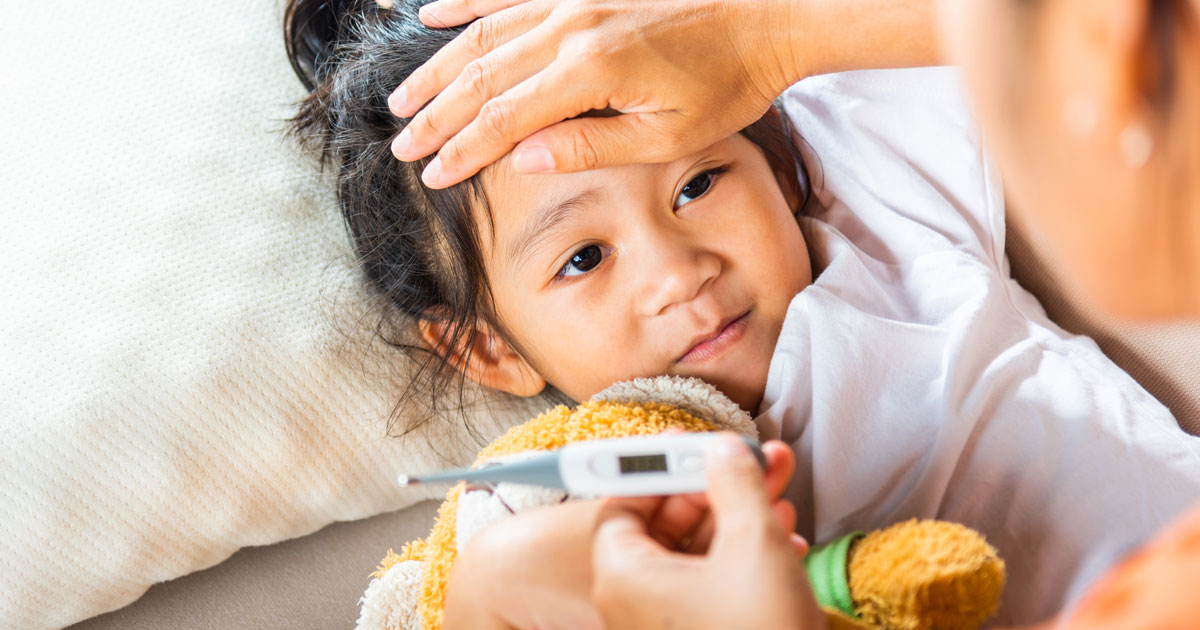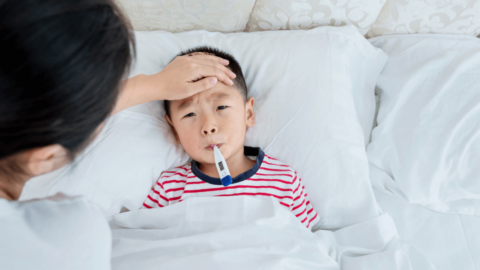Fever in children is a common concern for parents in Singapore, where the tropical climate and prevalence of infections make fever management a crucial skill. Understanding how to provide effective relief for children’s fever is essential for their comfort and well-being.
In this article, we explore various strategies and remedies tailored to Singaporean parents, offering practical solutions for alleviating fever symptoms and promoting recovery in children.
Understanding Children’s Fever
Fever is the body’s natural response to infection or illness, characterized by an elevated body temperature. In children, fever is typically defined as a body temperature above 37.5°C when measured orally or above 38°C when measured rectally. While fever itself is not a disease, it often indicates that the body is fighting off an infection.
Common Causes of Children’s Fever in Singapore
Given Singapore’s tropical climate and dense population, children are exposed to various infections that can cause fever. Common culprits include:
- Viral Infections: Respiratory viruses like the common cold and influenza are prevalent, especially during the rainy season.
- Bacterial Infections: Streptococcal infections, urinary tract infections, and bacterial pneumonia can lead to fever in children.
- Dengue Fever: Singapore experiences periodic outbreaks of dengue fever, a mosquito-borne viral illness common in tropical regions.
- Other Infectious Diseases: Hand, foot, and mouth disease (HFMD) and chickenpox are among the infectious diseases that can cause fever in children.
Strategies for Children’s Fever Relief in Singapore
1. Hydration
Ensuring adequate hydration is essential when managing fever in children. Offer your child plenty of fluids, including water, oral rehydration solutions, clear soups, and electrolyte-rich drinks like coconut water.
2. Comfortable Environment
Keep your child in a cool, comfortable environment to help lower their body temperature. Dress them in lightweight clothing and use fans or air conditioning to maintain a comfortable ambient temperature in their room.
3. Rest
Encourage your child to rest and get plenty of sleep. Resting allows the body to conserve energy and focus its resources on fighting off the infection, aiding in a quicker recovery.
4. Fever-Reducing Medications
Use age-appropriate fever-reducing medications such as paracetamol (acetaminophen) or ibuprofen to help lower your child’s fever and alleviate discomfort. Always follow the dosage instructions provided by healthcare professionals and avoid giving aspirin to children.

5. Sponge Baths
If your child’s fever is high and not responding to medication, you can try giving them a sponge bath with lukewarm water to help bring down their temperature gradually.
6. Herbal Remedies
Some parents in Singapore may opt for traditional herbal remedies to manage their child’s fever. Common herbal remedies include ginger tea, chrysanthemum tea, and herbal soups known for their cooling properties.
7. Traditional Chinese Medicine (TCM)
Traditional Chinese Medicine (TCM) practitioners in Singapore may recommend acupuncture, acupressure, or herbal formulations tailored to the child’s specific symptoms and constitution.
When to Seek Medical Attention
While most fevers in children are self-limiting and resolve without complications, it’s essential to know when to seek medical attention. You should consult a healthcare professional if your child:
- Has a fever above 40°C or persistent fever lasting more than three days.
- Exhibits severe symptoms such as difficulty breathing, lethargy, irritability, or seizures.
- Shows signs of dehydration, including decreased urination, dry mouth, or sunken eyes.
- Experiences persistent vomiting, severe headache, or an unexplained rash accompanying the fever.
Conclusion
Providing effective relief for children’s fever in Singapore requires a combination of home remedies, fever-reducing medications, and knowing when to seek medical attention. By following the strategies outlined in this article, parents can effectively alleviate their child’s fever symptoms and promote a speedy recovery.
It’s essential to stay informed, practice good hygiene, and seek medical advice when necessary to ensure the well-being of children in Singapore. With the right approach, parents can provide their children with the care and support they need to overcome fever and maintain good health.





